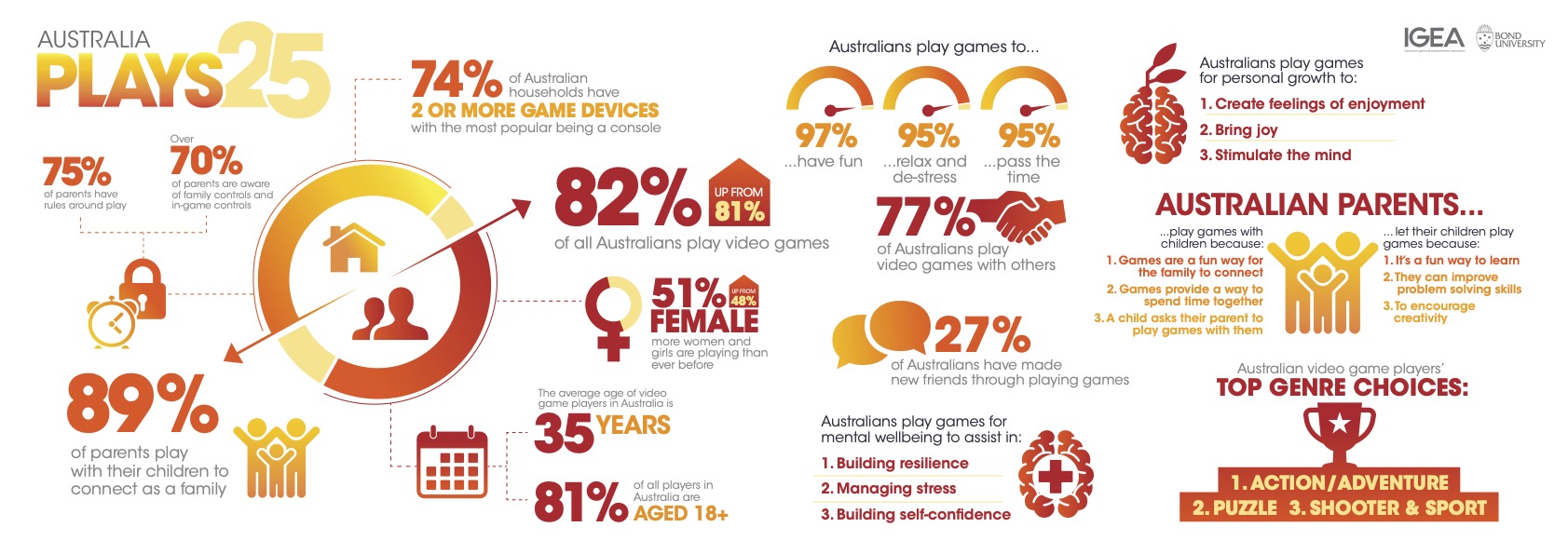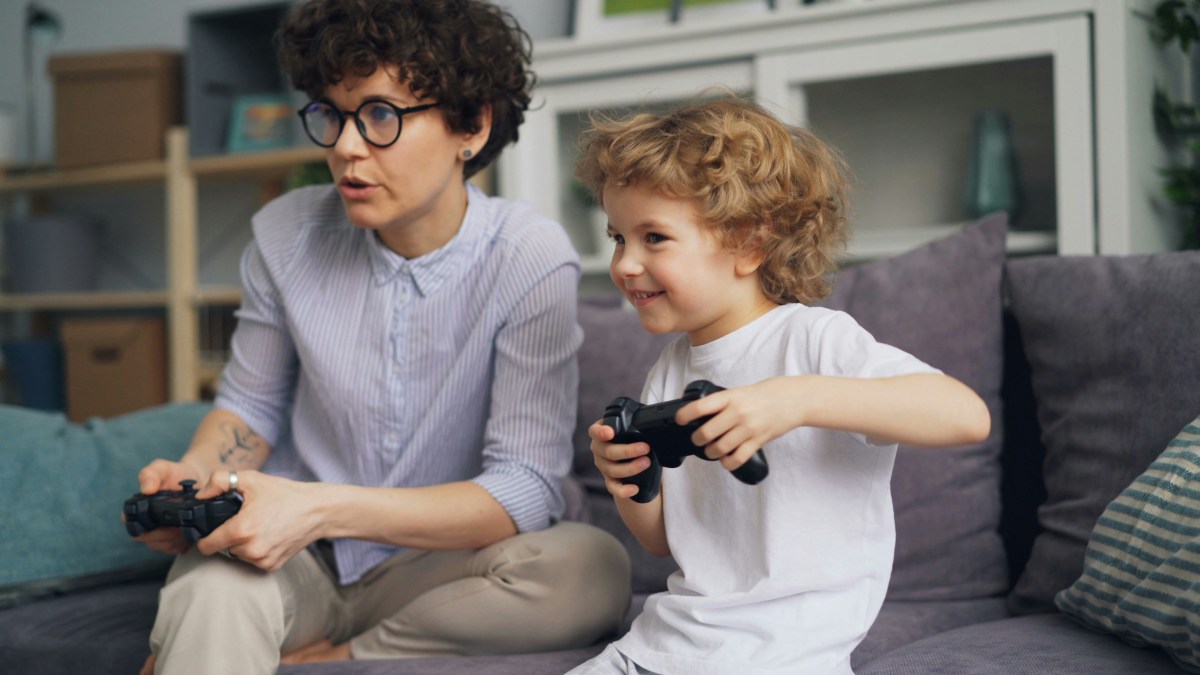The 2025 Australia Plays report, which aims to analyse the trends and behaviours of Australian video game players, has revealed 82% of Australians play video games, with the average age of players being 35 years old. While the data in the report does not significantly differ from its predecessors, it does confirm that gaming remains a popular pastime in the country, and explores a bounty of reasons why Australians game.
As noted, children are not the dominant players of video games, despite persistent stereotypes and common discourse. In fact, 71% of all players are aged between 18-64. Of the 82% of Australians who have played video games, the average time they’d spent playing them was 14 years.
Further breaking down these assumptions, the report also revealed 51% of video game players in Australia are female, and 48% are male. In a breakdown, analyst Jeff Brand acknowledged a possible margin of error in the data, as in all data sets, but noted this was the first yearly report that identified more female video game players than male.
‘Girls between 5-14 are playing video games more than boys,’ Brand said. They are also reportedly spending more time playing video games. Intriguingly, it also appears that from age 60 onwards, women spend more time playing video games than men.
Video games have vast benefits for mental health care

While reasons for playing games differ based on these demographics, there were commonalities in the answers shared. The vast majority of respondents said they played video games for fun, with relaxing and de-stressing being the second most-common answer. In the 18-34 year old age group, 89% of respondents said they play video games to improve their mental health, with de-stressing being the most common reason.
In a heartening note, 47% of this age group had reportedly made friends through games, with 34% subsequently becoming involved in community groups. 32% of this demographic also used games to stay connected with family and friends, via social play.
‘In a time where we are recognising a loneliness epidemic, video games can provide an avenue to help find connections,’ Jeff Brand said. ‘Most respondents agree video games have potential mental health benefits for those who play, whether they are young or old. These benefits include resilience, building self-confidence, managing stress and depression, and developing emotional intelligence.’
As well as these reasons, respondents also said they played games to pass time, to have a break from daily life, and to be challenged. In this way, we can understand that video games are a core tool for managing health and wellbeing, particularly for adults.
Parents use video games to bond with their children
These aren’t the only reasons people play, of course. Video games are also actively being used by parents as a bonding tool, to ensure common interests and activities with their children. Parents also lean on them to help teach their kids cognitive skills, creativity, teamwork, and leadership. Around 49% of parents believe games are effective ways to help children learn, with this statistic demonstrating a growing understanding of games and their power.
‘This year’s study shows more parents enjoy and understand games than we are often led to believe,’ Ron Curry, CEO of IGEA said. ‘Beyond that, they also see how games can enhance learning and skill development. We’ve seen a generation grow up with video games, and those gamers are now playing with their children. They are still enjoying playing games and they know how to use them to create joy and connection within their families.’
Per Brand, the study also shows that Australians are increasingly understanding that games can create an ‘engaging environment’ for children and adults to learn and develop new skills.
‘We’re seeing this gamification of education at schools and workplaces. Parents reported games being used in 42% of children’s schools to facilitate learning, and 29% of their children’s schools have game development in the curriculum,’ Brand said. ‘Organisations are beginning to meet their communities in spaces they enjoy, extending the learning environment in new, engaging ways.’
Overall, the Australia Plays 2025 report reveals that video games remain an important form of entertainment and education, in many aspects. For adults, they’re a significant way to manage mental health and wellbeing. For parents, they’re a way to create connection with their children. Beyond this, video games are important tools for learning, and building personal skills.
While common stereotypes about video games and their nature persist, this report illuminates much about their practicality, and the real impact they have on Australian lives. You can view the full Australia Plays 2025 report via IGEA.





